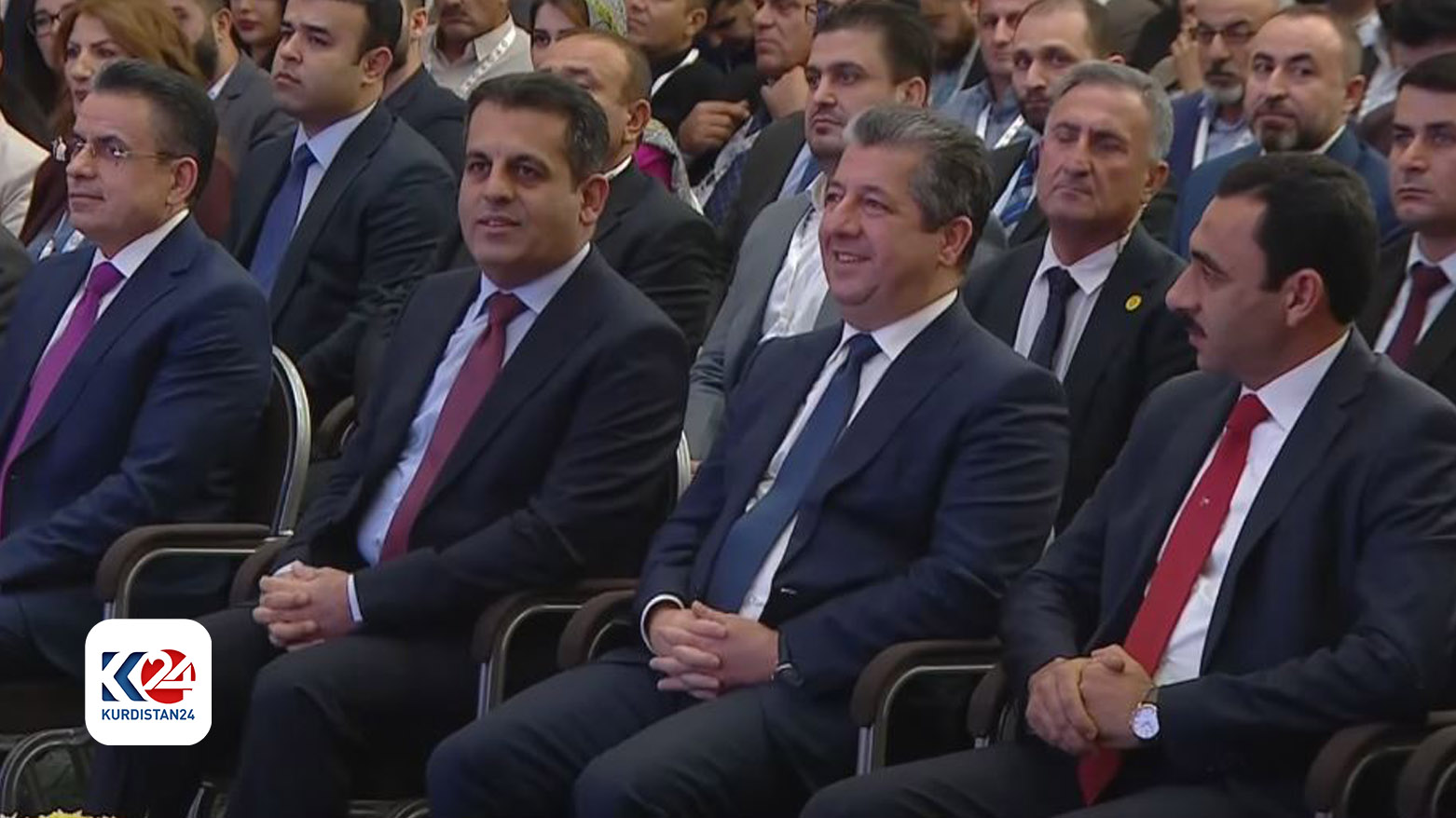PM Masrour Barzani attends health reforms, progress conference
The ongoing development of the Kurdistan Region’s health sector reflects the KRG’s commitment to improving the well-being of its citizens and strengthening the region’s healthcare system.

ERBIL (Kurdistan 24) – On Monday, Kurdistan Region’s Prime Minister Masrour Barzani attended a conference focused on the reform of health services and the medical sector, showcasing significant achievements under the Kurdistan Regional Government (KRG)'s ninth cabinet.
Key Achievements of the Ninth Cabinet in Health Sector Reforms
Since the formation of the KRG’s ninth cabinet, reforms have been implemented across various sectors, particularly in healthcare. According to international reports, including those from the World Health Organization (WHO), the Kurdistan Region's response to the COVID-19 pandemic has been notably effective, achieving lower rates of infections and fatalities compared to neighboring countries and global averages.
Despite the challenges posed by the pandemic, the KRG continued to advance its health sector reform agenda, with a series of major projects funded by the government budget over the past four years. Key milestones include:
- Construction of 12 new hospitals and renovation of 18 health centers across the Kurdistan Region.
- Opening of three specialized breast cancer centers in Erbil and Sulaimani, equipped with advanced Linac radiation therapy machines.
- Initiation of the region’s first Radiation Linac center and laying the foundation for the largest cancer hospital in Erbil, aiming to reduce the need for patients to seek treatment abroad.
- Investment of 258 billion dinars in cancer services, largely funded through the cancer aid fund.
Enhanced Regulation and Control of Medical Supplies
The KRG has prioritized the regulation of medicines and medical supplies to combat the influx of smuggled and illegal drugs. Measures such as electronic security labels on medications, price unification, and stringent market monitoring have been implemented. In 2023, these efforts led to the rejection of 172 tons of expired drugs and sanctions against 64 pharmaceutical companies for non-compliance with health guidelines.
Economic Impact of Health Reforms
The ninth cabinet’s health reforms have yielded significant economic benefits:
- A 20% reduction in wasteful expenditures.
- A 25% decrease in patient costs at private hospitals.
- Due to the improved quality of public healthcare, 85% of citizens in the Kurdistan Region now seek treatment in public hospitals.
Strengthened Health Partnerships
The KRG has also focused on strengthening collaborations with the Iraqi government, as well as local and international organizations, to secure medical supplies and support the region’s healthcare needs. This has enhanced the region’s capability to provide comprehensive medical services to residents and visitors.
Medical Tourism and Assistance
The improved healthcare infrastructure has attracted a growing number of patients to the Kurdistan Region for medical treatments. In 2023, over 91,000 patients from southern and central Iraqi provinces, as well as approximately 2,000 patients from neighboring countries, visited the Kurdistan Region for treatments and surgeries in both public and private hospitals.
Following the earthquake in Turkey and North Kurdistan, the KRG swiftly dispatched three emergency teams comprising 90 doctors and health workers, equipped with 45 ambulances and mobile hospitals. These teams provided humanitarian aid and medical assistance to earthquake victims for 13 days, demonstrating the region’s commitment to humanitarian support.
Positive Health Indicators
Reforms in the health sector have contributed to a reduction in overall mortality rates by 10%. Notably, neonatal mortality has decreased by 40%, attributed to increased public awareness and the provision of high-quality healthcare services.
The ongoing development of the Kurdistan Region’s health sector reflects the KRG’s commitment to improving the well-being of its citizens and strengthening the region’s healthcare system.